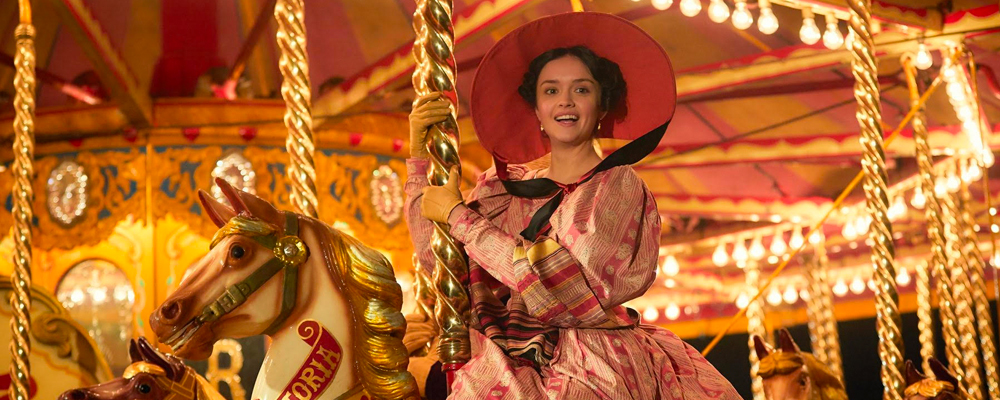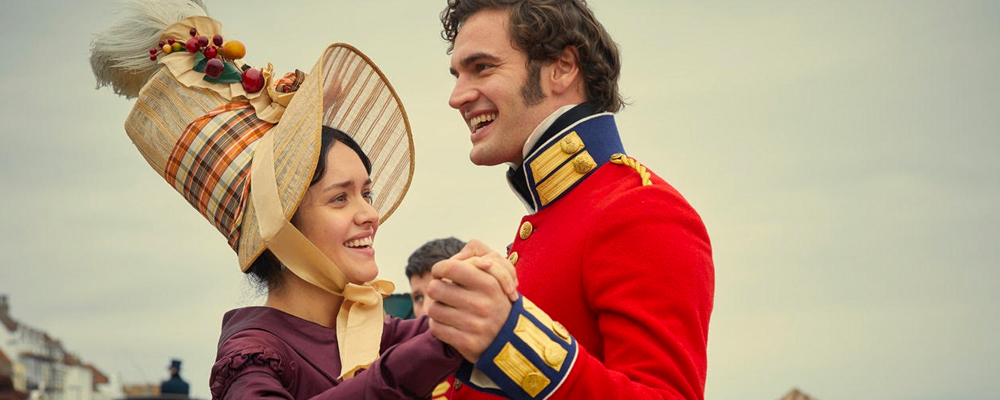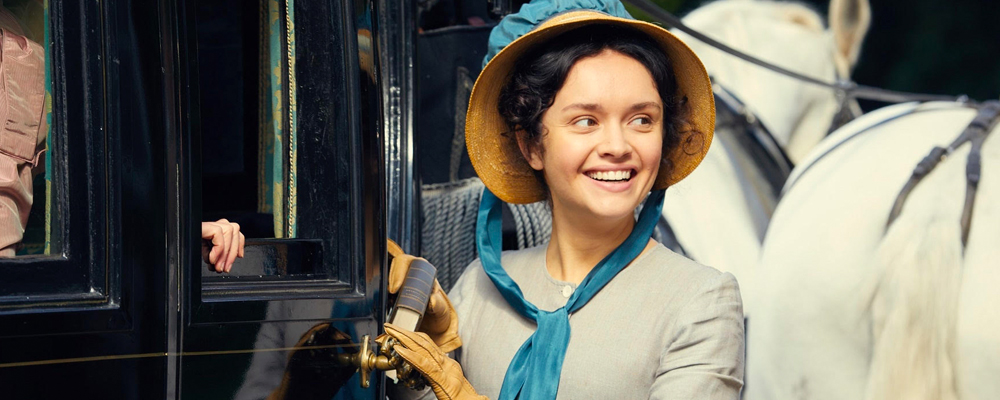Amazon’s ‘Vanity Fair’ Pairs Olivia Cooke With the Wicked Intrigues of Victorian English Society
Alci Rengifo
“Vanity Fair” is the series equivalent of a classic song that gets covered by different bands but never loses its appeal. This Amazon limited series is the latest adaptation of William Makepeace Thackeray’s 1848 Victorian classic about the usual, love and class. Written as Europe was about to undergo another wave of convulsive revolutions, Thackeray’s book has been a favorite for theaters, cinema and TV producers looking for a costume drama with verve. If you count the TV and movie versions together, there are 14 different variations of this tale out there already. This 7-episode Amazon offering is a lively, funny, visually elegant (as they all tend to be) romp that keeps Thackeray’s plot intact, changing little if anything, but introducing this story to a new generation of viewers who will bask in its relevant feminism.
Olivia Cooke plays Becky Sharp, doomed in a Victorian England to few social prospects other than being a governess for the aristocrats. She’s cursed with having been reportedly born to an artist father and “opera girl” mum. After graduating from the stifling environment of Miss Pinkerton’s Academy, Becky makes her way to the city with a seemingly too kind, wealthy companion, Amelia (Claudia Jessie). For a young lady like Becky, the best way to ascend from poverty is through marriage, which in this era has little do with romance. You choose a wife the way you choose a model car. But after one failed attempt at securing an engagement, Becky finds herself working for Sir Pitt Crawley (Martin Clunes) and finds immediate favor with his sister, Matilda (Frances de la Tour), who styles herself a radical. Becky begins to realize that in this world seducing or enticing the right person can go a long way, so she sets her sights on Matilda’s favorite nephew, Rawdon Crawley (Tom Bateman). Becky will begin playing a dangerous game as love and jealousy begin to swirl around her world and beyond the walls of aristocracy, war with Napoleon is brewing.
This new production of “Vanity Fair” aims for a combination of classic melodrama meets modern sensibilities. The opening credits are set to a cover of Bob Dylan’s “All Along the Watchtower” and one episode ends with Madonna’s “Material Girl” playing over the closing roster. Thackeray’s novel has always been admired over the years for its neo-feminist bent, and this show tries to put more emphasis on that aspect, in particular with characters like Matilda, who revels in the radical culture being bred by the distant French Revolution and is delighted when Becky reveals her parents’ low class identities. Becky is herself first the dutiful victim of her times, playing at being the clueless innocent trapped in a man’s world. But as played by Olivia Cooke there is a hidden cunning behind the sweet eyes, and when she is playing the piano and allows Rawdon to turn the music pages, she knows exactly what she’s doing.
One of the guilty pleasures of any version of “Vanity Fair” is how the narrative teases us. The series keeps the tone intact as in the first episodes we sympathize with Becky, but by the end she’s a darker figure, exposing herself as pretty cynical when it comes to certain moves and schemes. Once the Napoleonic Wars kick off, she isn’t above selling the Crawley’s own horses to make a profit. The real trooper in this whole tale is Amelia, whose family finds itself in that classic trap of the well-off, they can’t pay their debts, which leaves them in ruin and her as an unappealing bride. But when the chivalrous George Osborne (Charlie Rowe) marries her, he himself becomes a class rebel, dismissing his family’s protests because even in Victorian times, true love exists, at least that’s how you sell a good story.
Like most adaptations of “Vanity Fair,” this one is also pleasant to simply gaze at. Victorian England comes to life with the usual, lush costume designs, grandiose halls and lavish balls. It is the perfect playground for Becky to maneuver in, becoming friendly with the children of the rich who she tutors, capturing the stares of the men. Like “Dangerous Liaisons,” though not as vicious, “Vanity Fair” is about beating the odds and manipulating the social system by knowing how to at least pretend you belong.
As a holiday offering Amazon has scored another enjoyable period drama here. It does not reach the memorable heights of its recent “Picnic at Hanging Rock,” but it’s wicked and heartfelt enough. “Vanity Fair” has been told many times over, but there is a reason for that, and it’s that this is a tale that never grows old because in every era, we all have our parts to play, even when we have to pretend.
“Vanity Fair” premieres Dec. 21 on Amazon.



